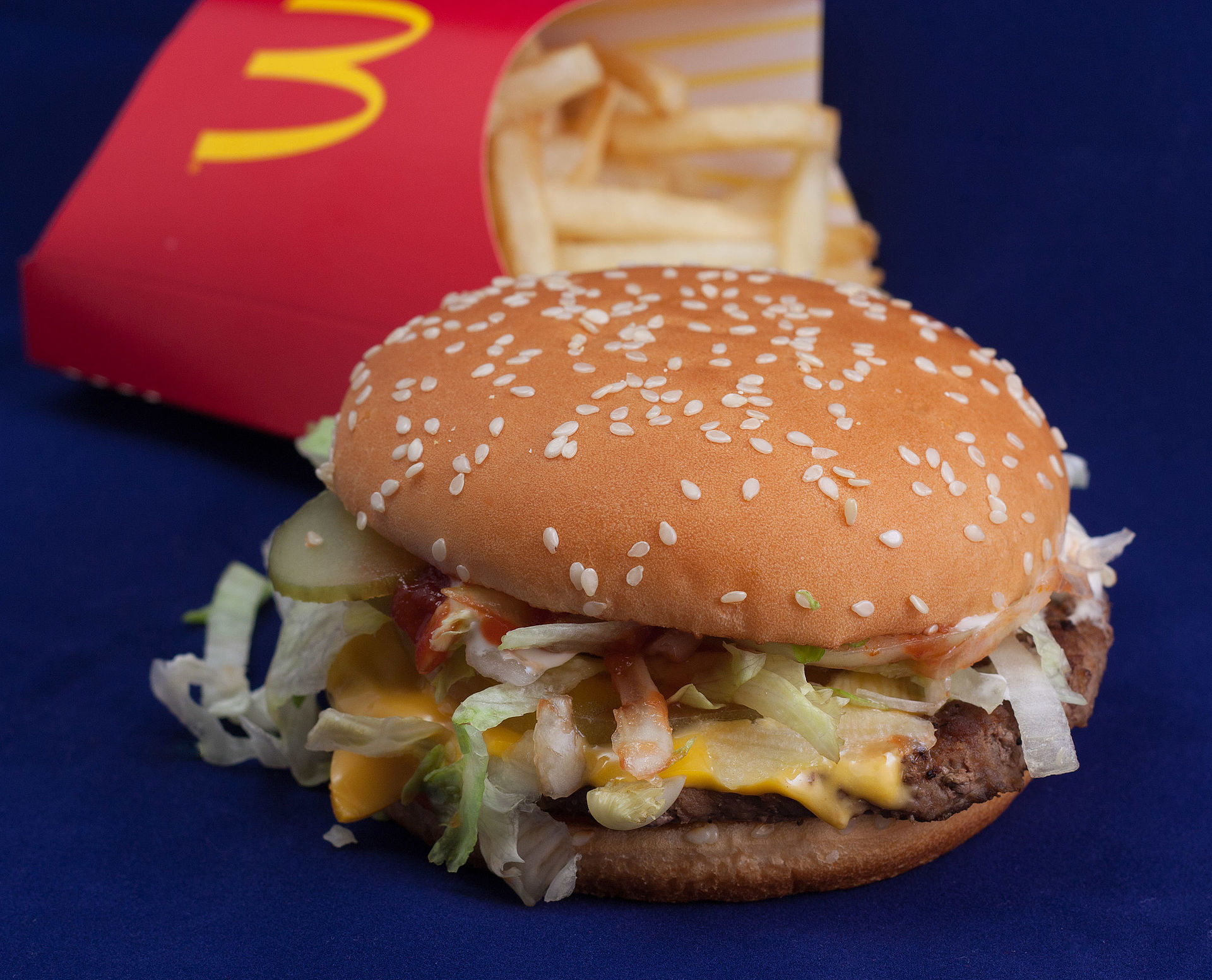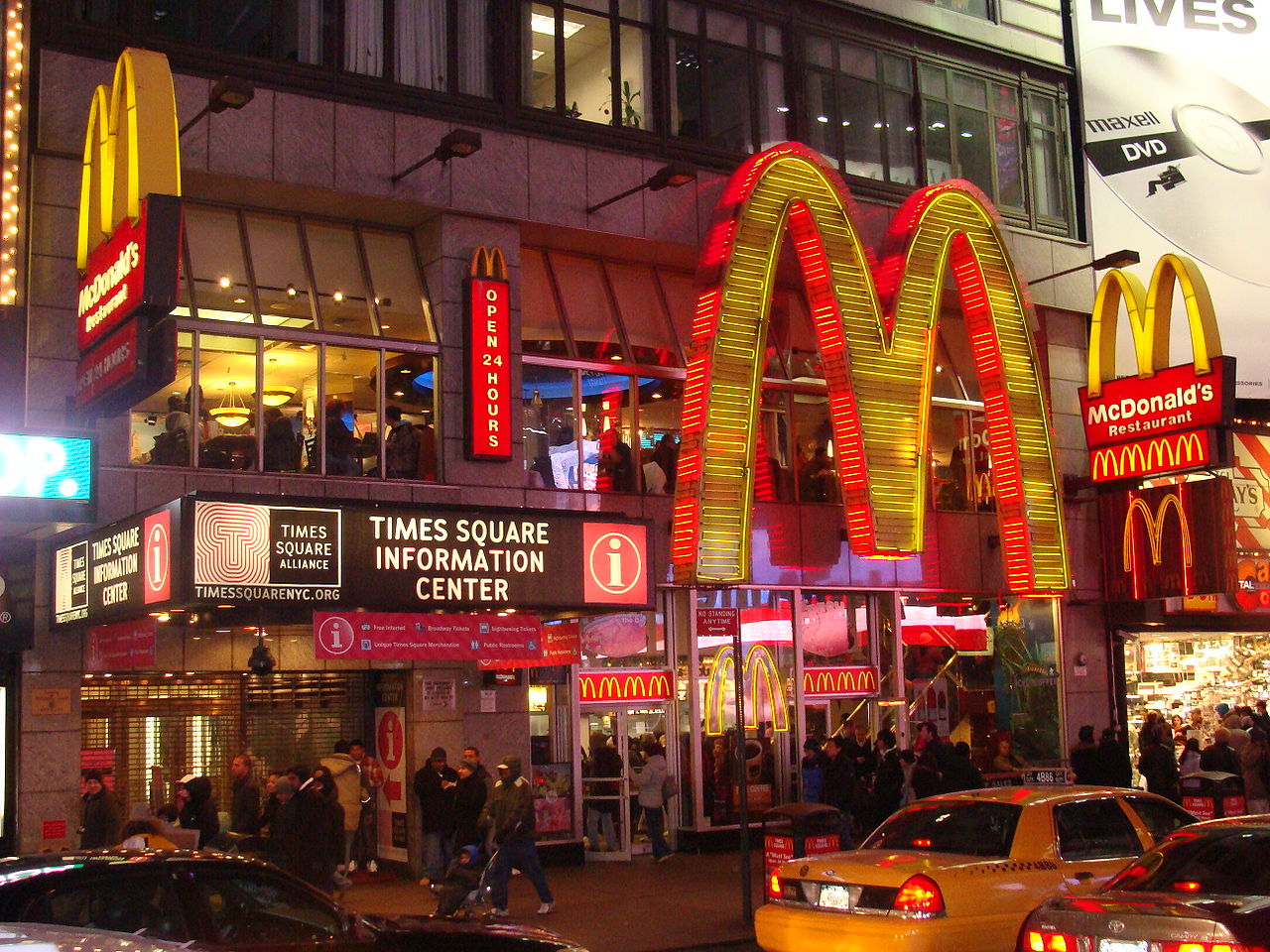About McDonald’s
The Founder, according to who you ask seems to be a good summary of how a few local burger joints bloomed into becoming the official home of the golden arches, McDonald’s. Richard and Maurice McDonald’s local restaurant venture ultimately became Ray Kroc’s business over time as he purchased his first franchise in 1955 and didn’t stop there. Kroc franchised more restaurants and eventually owned the company outright in 1961.
Since then the company has developed just over 13,000 globally franchised restaurants out of its total 40,000 and McDonald’s’ brand power has only strengthened and gained more and more fan fair since the 1960s.

However, at the end of the day, no matter the sentimental value attached to McDonald’s, the company is a publicly traded entity and we want to get a better idea as to whether or not their stock is worth buying in the long run.
Without further ado, let’s dig into McDonald’s financials.
McDonald’s’ stock financials
The company’s current share price hovers at around $266 from its pandemic low of around $148, has a market capitalization of just south of $196 billion, a price-to-earnings (P/E) ratio of 32.71 and pays out a $5.52 annual dividend to its shareholders.
McDonald’s’ stock has seen quite an impressive rebound in share price (as many consumer and COVID-sensitive retail giants have as well) and pays out a strong annual dividend to its shareholders.
However, what I’m not loving at the moment is the fact that the company’s share price, according to its current P/E ratio is overvalued. If you’ve read our team’s previous articles, you’d likely remember that it’s generally accepted that a P/E of 20 indicates that a company’s stock is trading at fair value (what it’s currently worth paying for) and anything above suggests that it’s overvalued.
Therefore, McDonald’s’ recent impressive run up in share price has not made it the most opportune time to invest in the company for value-oriented investors such as myself.
Digging deeper into the company’s financials, McDonald’s’ executive team manages almost $54 billion in total assets and around $58 billion in total liabilities according to its balance sheet.
This balance sheet is a bit more liability-heavy than we initially predicted.

The company’s relatively high amount of total liabilities can likely be attributed to McDonald’s owning the land under its restaurants. Given that the company by virtue owns a large amount of real estate, the real estate industry itself is debt-heavy and our team generally assumes that McDonald’s will have little to no problem paying down its liabilities for years to come.
We’ll see later whether or not this is a reasonable assumption to make.
After all, they did survive the brunt of COVID-19 and if any dining establishment or quick service restaurant (QSR) franchise business can weather another financial storm, it’s likely McDonald’s, even though the company’s balance sheet favors the total liabilities side of its balance sheet.
We’d also like to note that the company’s total liabilities increased dramatically between 2018 and 2019 (as the COVID-19 virus began to spread and disturb the economy) from around $39 billion to $55.7 billion, respectively.
Oddly enough, this reassures us a bit since their total liabilities ballooned into the $50 billion range only after a catastrophic, extraordinary event such as a global pandemic occurred and not during the normal course of the company’s business operations.
Onto McDonald’s’ income statement, the company’s total revenue has generally been stable over the past five years, lingering in low-to-mid $20 billion range.
We take a lot of comfort in this consistency, especially as the company continued to generate revenue when it had to close stores across the globe while revamping and pivoting its business strategy.
Thankfully, the company’s partnerships with popular third party delivery platforms such as DoorDash and Uber Eats have seemingly helped the company maintain current consumers while reaching new ones as well.
We like that McDonald’s is equipped and prepared for future health emergencies and has different channels through which it can interact with consumers while of course, generating consistent revenue.
Finally, the company’s cash flow has been predictable and positive in recent years and we don’t see many (if any) reasons for this to change.
McDonald’s’ stock fundamentals
If you can turn a profit higher than that of the competition in the restaurant and dining space, you’re doing something right and you ought to stick to it.
McDonald’s has stuck to it.
Being a leader in the fast-food space has its perks and one of them is being able to achieve a considerably higher trailing twelve month (TTM) net profit margin than that of its peers. The company’s TTM net profit margin stands at around 25.77% to the industry’s average of 5.14%, according to TD Ameritrade’s platform.
As good and ubiquitous (the company holds over 20% market share of the fast-food industry) as McDonald’s is, the company goes up against some very stiff competition. A handful of the company’s competition includes Burger King, Wendy’s, Kentucky Fried Chicken (KFC), Subway, Chipotle and other local fast-food chains in and around your neighborhood.
If McDonald’s can continue to keep its Big Mac market share in the space while outprofiting its formidable competitors, there’s not much standing in the way of the company and its future success.
The company has also been able to produce elevated returns on its assets and investments, which is quite important to us. For instance, McDonald’s return on assets have generally stayed at around 12% and has seen a general uptrend in regards to its return on investment(s).
Should you buy McDonald’s stock?
Valuation is pretty much the only thorn in our side when pondering an investment in McDonald’s’ stock.
The business model is proven, the financials are sound overall and aside from its burgers and fries the company is arguably one of the most valuable brands ever.
Given all of this information we currently give McDonald’s a “hold” rating.
DISCLAIMER: This analysis of the aforementioned stock security is in no way to be construed, understood, or seen as formal, professional, or any other form of investment advice. We are simply expressing our opinions regarding a publicly traded entity.
